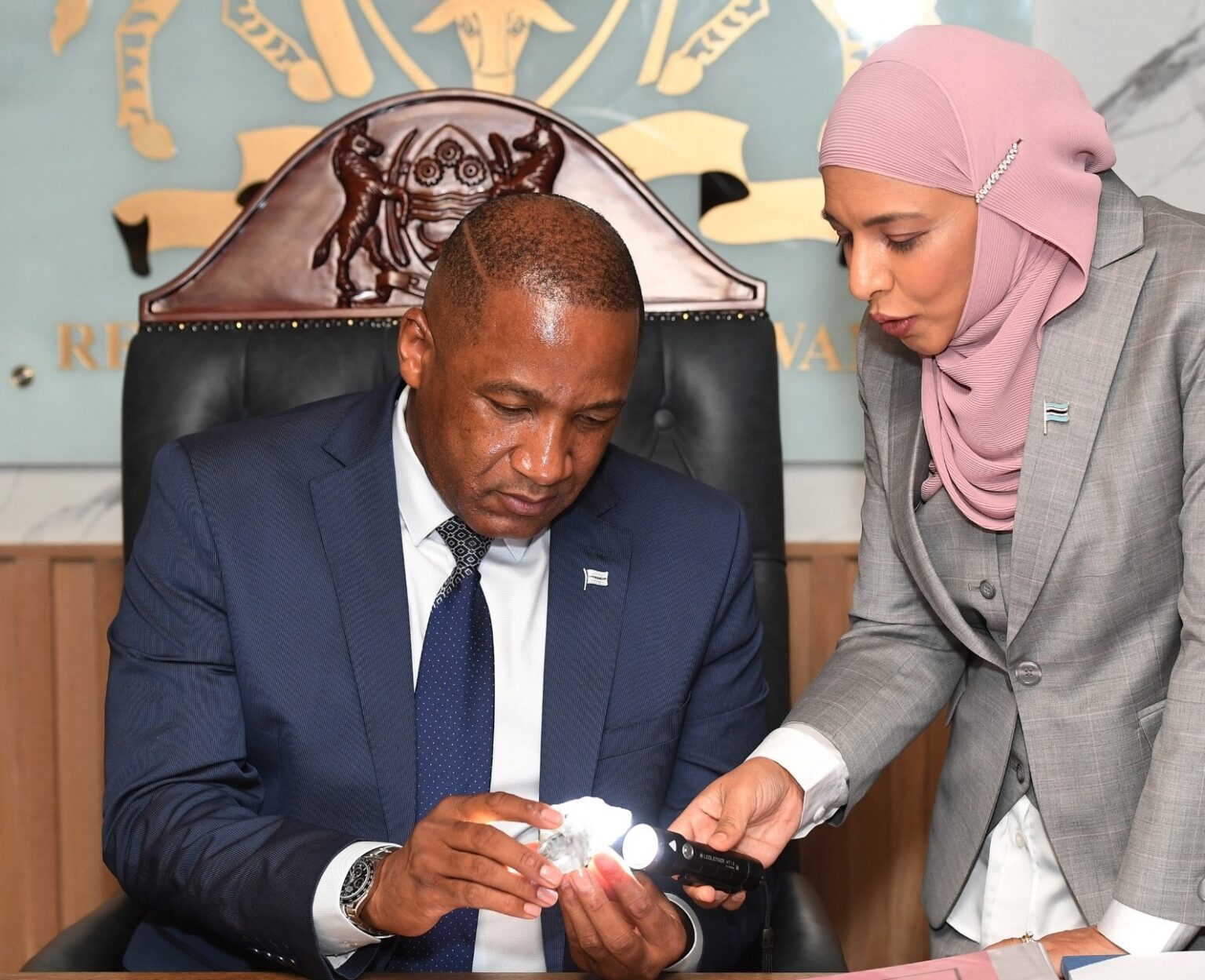The sweeping changes in Botswana during 2024 have set the stage for a transformative year in 2025, especially in the areas of governance, policy reform, and the diamond industry. With the fall of the Botswana Democratic Party (BDP) after nearly six decades in power, the emergence of a new government under the Umbrella for Democratic Change (UDC), and pivotal shifts in policy and trade, businesses across the country are bracing for significant opportunities and challenges.
1. A New Government: Promises of Economic Reforms
The peaceful transition of power to the UDC heralds a new era of governance in Botswana. The UDC’s commitment to tackling corruption, improving public services, and addressing economic mismanagement has sparked optimism among businesses. For investors, this change signals potential policy adjustments aimed at fostering a more business-friendly environment.
Key expectations include:
• Streamlined Bureaucracy: Easing regulatory processes to encourage investment, particularly in sectors such as mining, agriculture, and tourism.
• Support for Local Enterprises: Policies that could prioritize funding for SMEs and startups to diversify Botswana’s economy.
• Infrastructure Development: Increased investment in transportation, energy, and digital connectivity, creating opportunities for construction and technology businesses.
However, the success of these reforms will depend on the government’s ability to deliver on its promises while maintaining fiscal stability. Businesses are likely to adopt a cautious yet hopeful approach as the new administration navigates its early months.
2. A Historic Diamond Deal
Botswana’s renegotiation of its diamond partnership with De Beers was one of 2024’s most pivotal moments. The new deal ensures that a greater share of diamond revenues stays within the country, marking a major step toward economic independence.
Implications for Business in 2025:
• Increased Public Spending: With billions in additional revenue expected, the government will likely channel funds into public services, infrastructure, and social programs. This increased spending will create opportunities for businesses in construction, healthcare, and education.
• Growth of Local Diamond Industries: The revised agreement could boost downstream industries such as jewelry manufacturing and diamond cutting, offering opportunities for local entrepreneurs and creating jobs.
• Enhanced Investment Appeal: Botswana’s successful renegotiation showcases its ability to secure equitable deals, bolstering investor confidence in the country’s resource management.
To maximize these benefits, businesses will need to align with the government’s broader economic goals, particularly in value-added production and resource sustainability.
3. Policy Shifts: The Vegetable Import Ban Lifted
The lifting of the vegetable import ban in 2024 marked a significant policy reversal, with far-reaching implications for businesses in agriculture and retail. While the original ban aimed to promote local farming, it created supply shortages and price hikes, impacting consumers and businesses reliant on consistent produce availability.
Opportunities for 2025:
• Improved Supply Chains: Businesses in food retail and hospitality will benefit from more reliable access to imported vegetables, stabilizing prices and ensuring product variety.
• Enhanced Competition: Local farmers will face increased competition from imports, driving innovation and efficiency in the agricultural sector.
• Partnerships in Agribusiness: Opportunities will arise for collaborations between local farmers and international suppliers to improve farming techniques and productivity.
While the policy change addresses short-term supply challenges, businesses must adapt to a competitive landscape where quality and cost-efficiency become critical to success.
Looking Ahead: A Year of Transformation
The combined effects of a new government, a landmark diamond deal, and policy shifts such as the lifting of the vegetable import ban position Botswana for significant economic transformation in 2025. Businesses have the chance to capitalize on these changes by embracing innovation, fostering collaboration, and aligning with the country’s broader goals of economic diversification and sustainability.
While challenges remain, particularly in navigating new policies and ensuring transparency, Botswana’s evolving landscape offers a wealth of opportunities for those ready to seize them. With diamonds, governance, and trade reforms at the forefront, 2025 is poised to be a year of growth and renewal for the nation’s business community.












